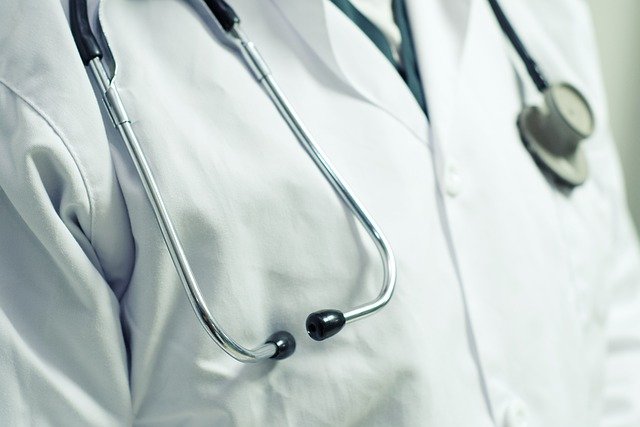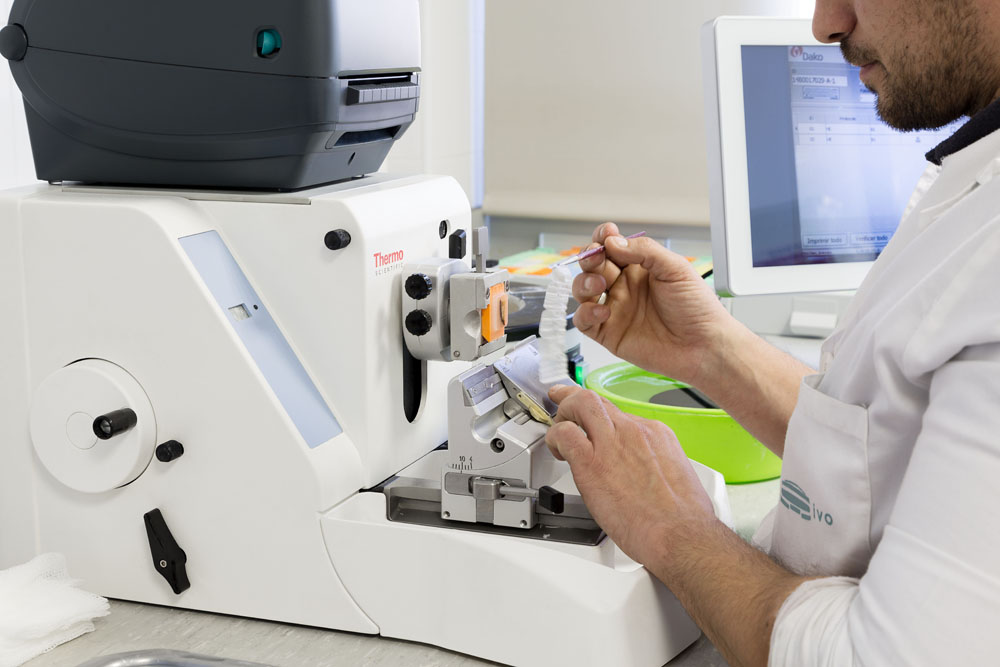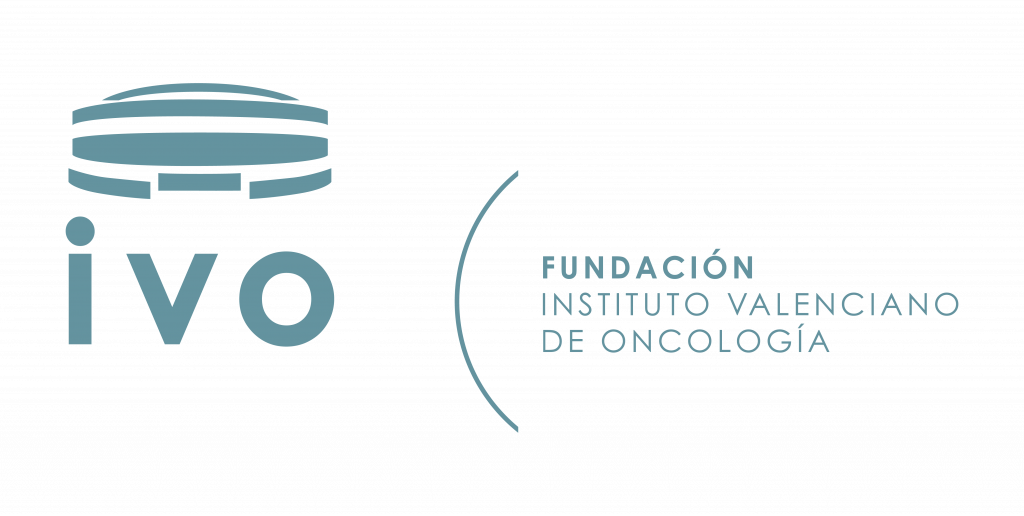The IVO has a total of 4 places accredited by the Ministry of Health for Specialized Health Training (FSE) in the Teaching Units corresponding to the following specialties:
- Medical Oncology
- Radiotherapy Oncology
- Medical-Surgical Dermatology and Venereology
- Hospital Radiophysics
Call for ESF 2023/2024
In the present call for access to positions in 2024 contemplated in the Order SND/990/2023, of August 17, approving the offer of positions and the call for selective tests 2023 for access in 2024, to specialized health training positions for university degrees/licentiate/diploma in Medicine, Pharmacy, Nursing and in the field of Psychology, Chemistry, Biology and Physics, the Fundación Instituto Valenciano Oncology Foundation as a private sector hospital, as a private sector hospital, has been awarded the 2023/2024 FSE, Pharmacy, Nursing and the fields of Psychology, Chemistry, Biology and Physics, the Valencian Institute of Oncology Foundation, as a private sector hospital that awards its places through the public system, has an offer of 4 accredited places: 1 MEDICAL ONCOLOGY, 1 RADIOTHERAPIC ONCOLOGY, 1 MEDICAL-SURGICAL DERMATOLOGY and VENEREOLOGY and 1 HOSPITAL RADIOPHYSICS.
Celebration of the exercise. The fiscal year will be held on January 20, 2024.
Provisional lists of results. By means of a resolution of the head of the Directorate General of Professional Organization, the provisional lists of the results obtained in the tests will be published on the website of the Ministry of Health, in the month following the holding of the exercise.
Definitive lists of results. By means of a resolution of the head of the Directorate General for Professional Organization, the definitive lists of results will be approved and published on the website of the Ministry of Health, in the month following the publication of the provisional lists of results.
Allocation of vacancies. In the month following the approval of the definitive lists of results, the head of the Directorate General of Professional Organization will issue a resolution, which will be published on the web page of the Ministry of Health, summoning, by degree, the persons who have reached the minimum score, regardless of the access shift, to submit an application for the awarding of a place. Said resolution shall establish the specific indications for the awarding of vacancies, as well as the term and other circumstances related to taking possession of the same.
Taking possession. The resolution of the person in charge of the General Directorate of Planning approving the definitive lists of persons awarded a place, which will be published on the web page of the Ministry of Health, will establish the term for taking possession of the place awarded in the corresponding center or teaching unit, as established in article 25.1 of Royal Decree 589/2022, of July 19. Failure to do so, or if they renounce the position, the person awarded will lose the rights derived from passing the selective test.4
Residents from other centres come to our own to complete their studies with training stays in the different services and units
MIR Residency Programme at the IVO
During Specialised Medical Training, both the healthcare and research activities of the residents must be aimed at achieving adequate preparation in the chosen speciality.
The teaching mentors will be the staff members of each Service and of the departments where residents are on rotation.
The next mentor is the Resident Tutor. The function of the Tutor is to organise and supervise the teaching activities of each Unit through the daily contact he/she must have with the residents.

In addition to those established in general terms in the Workers’ Statute and/or specific collective bargaining agreements, residents shall have the following specific rights and duties:
Rights:
a) To be familiar with the training programme of the speciality they are applying for, as well as, where appropriate, the individual adaptations.
b) To have a tutor appointed to them who shall assist them while carrying out any of the activities foreseen in the training programme.
c) To receive, through programmed, supervised and assessed professional practice, theoretical and practical training that will enable them to progressively acquire the knowledge and professional responsibility necessary for the autonomous practice of the speciality, through their integration into the healthcare, ordinary and emergency activities of the centre.
d) To be informed of the functions, tasks, duties, functional programming and objectives assigned to their unit, centre or institution, and of the systems established for assessing compliance.
e) To practise their profession and carry out the activities inherent to the specialty with a progressive level of responsibility as they advance through the training programme.
f) To know which professionals on the staff are present in the unit in which the resident is providing services and to consult them and request their support when necessary, without this entailing refusal of assistance or abandonment of their post.
g) To participate in teaching, research, care and clinical management activities in which the accredited unit is involved.
h) To have their activities recorded in the registrar’s book.
i) To have the ongoing, annual and final assessments of their learning carried out with the utmost objectivity.
j) To extend their training for the time and under the conditions established in sections 3 and 4 of the previous article.
k) To review the annual and final assessments carried out in accordance with the procedure regulated in this Royal Decree.
l) To be represented, under the terms established by the legislation in force, on the National Commission for the Speciality and on the teaching commissions of the centres.
m) To assess the suitability of the organisation and operation of the centre for the teaching activity, with the guaranteed confidentiality of this information.
n) To receive assistance and protection from the teaching body or health services in the exercise of their profession or in the performance of their duties.
ñ) To enjoy the same occupational health protection as the rest of the workers of the entity in which they provide services.
o) To not be deprived of their post except for one of the causes of termination provided for in this Royal Decree or other legally provided causes.
Duties:
a) To undertake the entire training programme on a full-time basis, without combining it with any other activity under the terms established in Article 20. 3. a) of Law 44/2003.
b) To train following the instructions of their tutor and of the healthcare staff and of the sole proprietorship and collegiate management and teaching bodies which, in coordination, are responsible for the centre running smoothly and the development of the training programme of the corresponding speciality.
c) To be familiar with and comply with the regulations and operating rules applicable in the institutions that make up the teaching unit, especially with regard to patients’ rights.
d) To personally provide the services and perform the healthcare tasks established in the corresponding training programme and the functional organisation of the centre, in order to acquire the professional competence relating to the specialty and also contribute to the goals of the healthcare institution.
e) To rationally use resources for the benefit of the patient and avoid their illegitimate use for their own benefit or that of third parties.
The Valencian Autonomous Community Health Act of 29 December 2014 provides information on the framework within which your relationship with patients and their relatives must be developed.
Rights:
- To respect their dignity, without discriminating against them for reasons of race, sex, economic status, social or ideological differences, or age.
- To preserve the privacy of their body with respect to other people.
- To receive humane, kind, understanding and respectful treatment at all times.
- To maintain the confidentiality of the data on their health, without anyone being able to access them without their authorisation, except in the cases provided for in current legislation.
- To obtain the healthcare, pharmaceutical and complementary health benefits necessary to promote, conserve, and restore their health and/or alleviate suffering, as established in current legislation.
- To know all the information obtained on their own health in any healthcare process, although the will of the patient who does not wish to be informed shall be respected. The patient is the sole holder of the right to information.
- To decide freely between the clinical options presented to him/her by the doctor, after receiving adequate information. His or her consent is required, by means of Informed Consent, prior to surgery, invasive diagnostic and therapeutic procedures, and when carrying out procedures that entail relevant health risks.
- To choose a doctor and a centre under the terms and conditions established by the Regional Ministry of Universal Health and Public Health.
- To issue Advance Directives and to have these respected by the Healthcare Institution.
- To have access to the documents and data in their Clinical History and to obtain a copy of the same, under the conditions established by the Regional Ministry of Universal Health and Public Health.
- To receive a discharge report at the end of the care process.
- To formulate suggestions, complaints and expressions of gratitude.
- To obtain a second opinion within the public health system when the circumstances of the illness require them to make a difficult decision.
- To receive personalised care.
Duties:
- To treat the professionals who care for your health with consideration and respect and to comply with all the rules of operation and coexistence established in each healthcare centre.
- To make good use of the healthcare resources and services.
- To comply with the health prescriptions established in general by the Regional Ministry of Universal Health and Public Health in order to prevent health risks.
- To make rational use of pharmaceuticals and benefits related to the incapacity for work.
- To use and care for the healthcare facilities and services, contributing to their conservation and favouring their habitability and the comfort of other patients.
- To truthfully provide their identification data and those necessary for a better healthcare process or for reasons of general interest.
- To sign the established document when they do not wish to receive the treatment they have been prescribed, especially in the case of diagnostic tests, preventive measures or treatments that are especially relevant to their health.
- To accept discharge when the care process has been completed.
- To comply with the rules and procedures for use and access to the rights granted to them by the Health Act of the Valencian Autonomous Community of 29 December 2014.
- All citizens must inform the health administration of any circumstances that pose a serious risk to public health and collaborate in carrying out public health activities.

Teaching commission
Organises training, supervises its practical implementation and monitors compliance with the objectives specified in the programmes.

Scientific report
The IVO's Scientific Report presents the balance of the scientific activity and a compilation of scientific projects and publications

